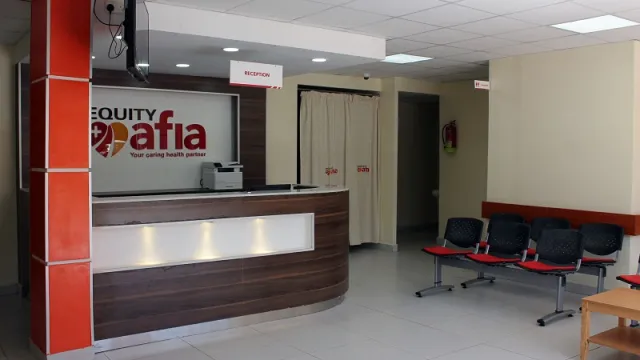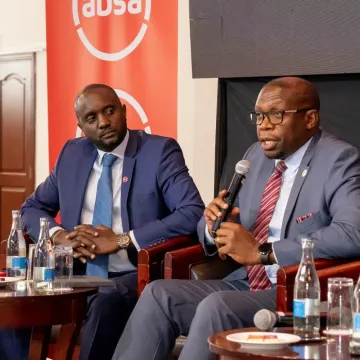Equity Afya clinics served 1.2 million patients in 2024

Equity Afya model, which was available in just 36 counties in 2023, is structured to offer "affordable, high-quality, and standardized health services, especially in underserved and rural communities.”
The number of people seeking healthcare services across Equity Afya clinics surged by 1.2 million last year with the financial institution's flagship social impact arm opening outlets across all 47 counties in Kenya.
According to Equity Group's 2024 Sustainability Report, Equity Afya centres served a cumulative 3.3 million patients last year, up from 2.1 million in the previous year.
"Rural communities are often underserved, with limited access to healthcare services that are frequently of substandard quality. This gap is further exacerbated by poverty, escalating healthcare costs, low levels of health literacy, and a critical shortage of healthcare professionals. Strengthening the health workforce is therefore vital to improving the overall effectiveness of health systems," the report themed “A Sustainable World is a Transformed Africa” Equity’s fourth annual sustainability report states in part.
The lender notes that Equity Afya model, which was available in just 36 counties in 2023, is structured to offer "affordable, high-quality, and standardized health services, especially in underserved and rural communities.”
Across the country, Equity Afya is designed under three levels, that is, a hub managed by a medical doctor; satellite managed by a clinical officer, and a spoke-level facility managed by a nurse. Overall, the centres are all modelled to extend the reach of healthcare services and ensure continuity of care across diverse geographic areas.
Last year, Equity Afya saw its network of outlets in Kenya grow to 127 across Kenya even as the lender opened five clinics in its new frontier market, the Democratic Republic of Congo.
Credit lifecycle
The report notes that during the year under focus, the Group embedded Environmental, Social, and Governance (ESG), climate, and nature risk across its's credit lifecycle by operationalizing Environmental and Social Risk in lending, strengthening disclosure controls, and upgrading data systems to firm up decision making and reporting approaches.
“This milestone reinforces our leadership in transparent, impact-based reporting, anchoring finance in accountability, purpose, and strengthened governance. Through the SDID Report, we are going beyond traditional financial disclosure to demonstrate how every shilling invested creates value for people, communities, and the planet. This is the future of finance, one that measures success not only in profit, but in progress," stated Dr. James Mwangi, Equity Group CEO during the release of the report.
Financial literacy
Meanwhile, through cash transfers, affordable credit, and financial literacy programs, the Group facilitated reach to over 447,355 vulnerable households, disbursing KES25.8 billion cash transfers and KES4 billion in loans to foster resilience and inclusion.
"Cash transfers empower recipients by offering choice, preserving dignity, and fostering financial autonomy," the report adds.
Under the Equity Group Foundation’s agriculture pillar, a total of 245,675 farmers received training across various aspects of the value chains last year, out of which 22,458 growers specialize in cereals, a vital crop for the region’s food security.
Additionally, the report shows that 7,426 Micro-Small and Medium Agriculture Enterprises were trained to boost productivity and promote sustainable farming practices. The Foundation also geo-mapped 178,138 farms, enabling data-driven agricultural planning and decision-making.
To further support farmers, 183,463 individuals were linked to agricultural markets and post-harvest loss solutions, while seven on tips on financial literacy and good agricultural practices.
On climate action, Equity Foundation says it reached more than 466,000 households, delivering close to 45,000 clean energy equipment, thereby driving the region closer to a sustainable future. "These efforts represented a total value of US$28.5 million, showcasing the Foundation’s commitment to driving impactful change."




